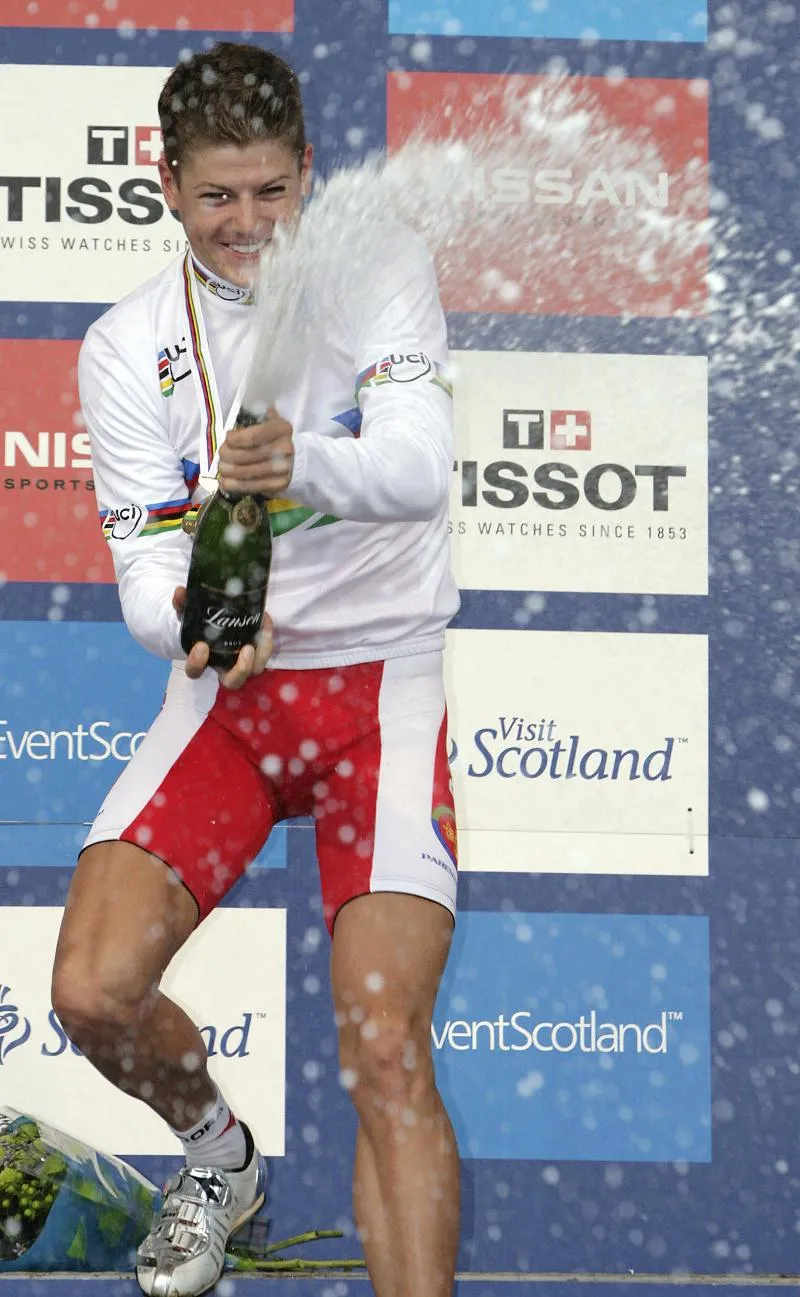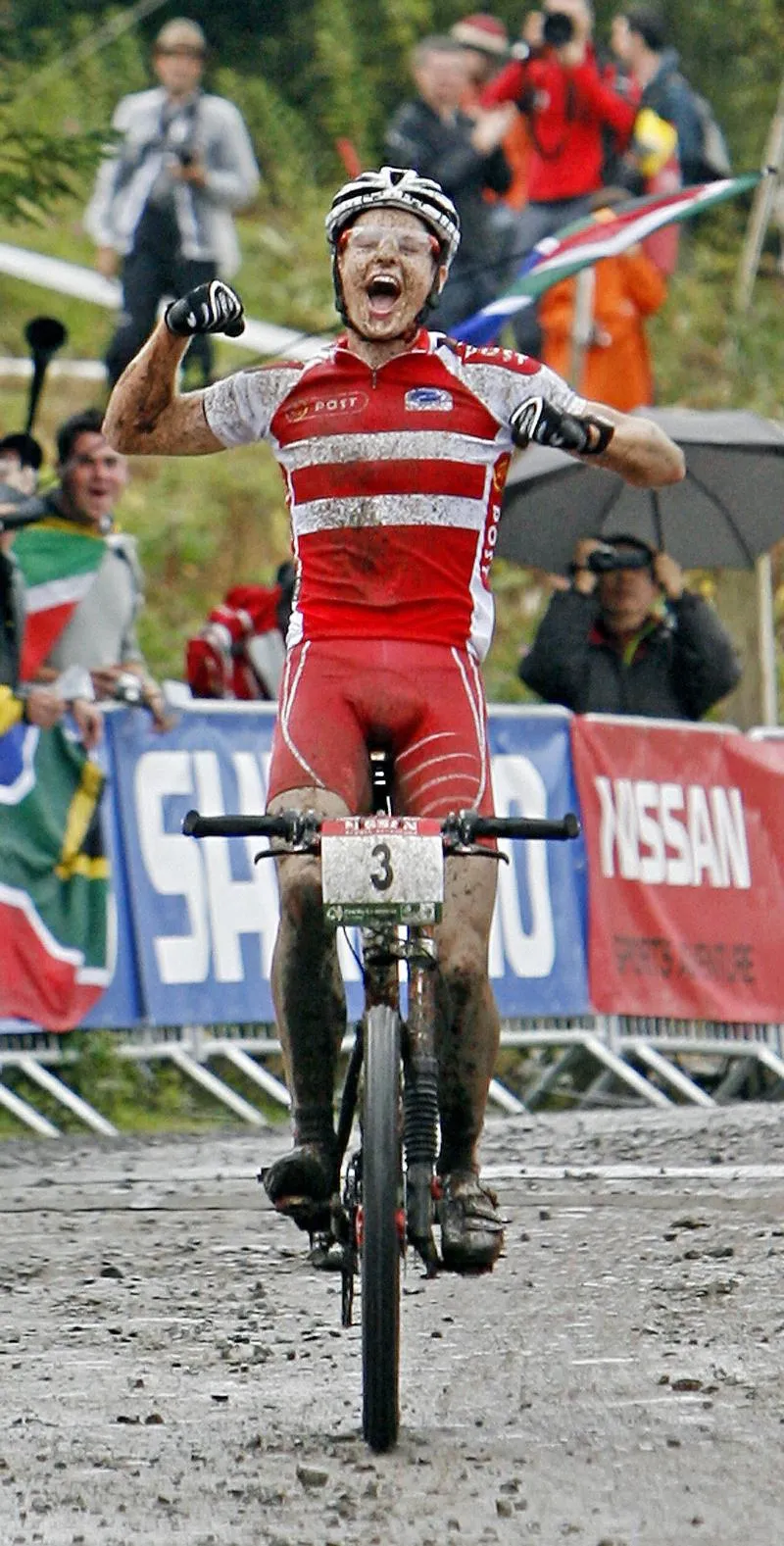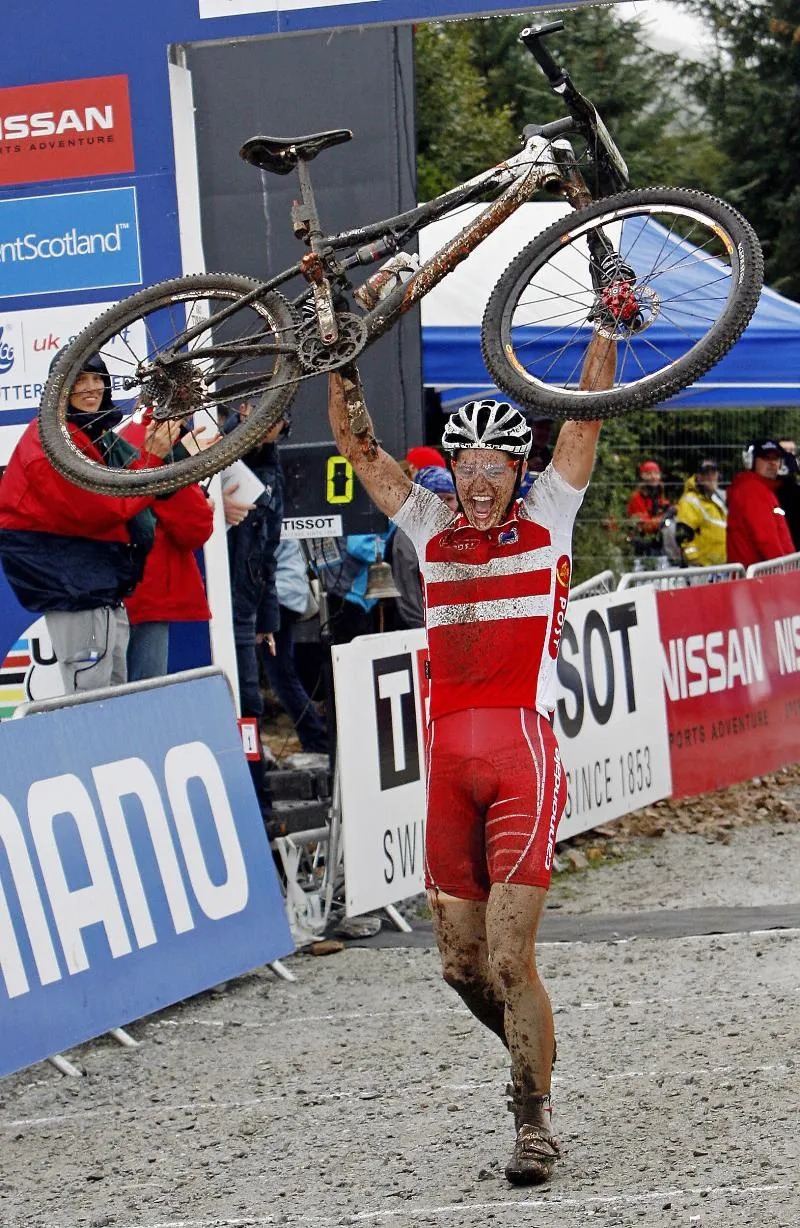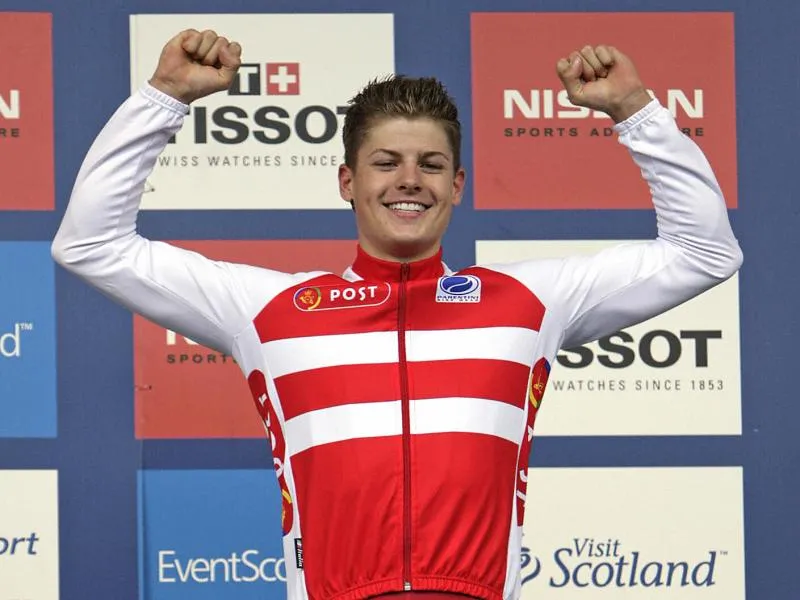Miguel Martinez, Michael Rasmussen, Cadel Evans – all mountain bikers who have made the successful transition to road. You can add one more to that mix in 2009: Jakob Fuglsang.
The news that the Dane would be joining Bjarne Riis and the new Saxo Bank road team came as an end-of-season surprise and signals an exciting move for one of cycling’s most promising prospects.
After several years’ success on the mountain bike world cup circuit riding for Cannondale-Vredestein, Fuglsang was seen as a star for the future. His first senior year included two world cup podium appearances, Olympic selection and victory alongside team-mate Roel Paulissen in the CapeEpic. His biggest win to date, though, came in late 2007 when he won the under-23 UCI world championships at FortWilliam.
Upsetting race favourite Nino Schurter may have been a shock for fans and pundits, but it was not such a surprise for Fuglsang, as he recalls to us: “We were doing a road race in Switzerland just before the World's and I could see there that I was stronger than Nino so I knew I'd have the mental edge. Becoming world champion was my overall goal for mountain biking. I came to the race with the mental image that I could do it.”
The race was not won easily, though, and at first it was Schurter who gained the advantage. Fuglsang said: “In the beginning he rode away from me. I rode far too safe on the descent, I was not doing a good job there. So I said to myself, ‘either you go 100 percent and take the risks or you have to be satisfied with second place’. So from there on I was riding with everything.”

This win set Fuglsang up as the latest hot property in cross-country racing, but two years earlier the mood was very different. Following a string of bad results, the young Dane was looking for a way out. No road teams were interested so a renewed commitment was made to mountain biking.
This focus, alongside a move to Italy from Denmark, resulted in Fuglsang becoming a top-10 fixture in the mountain bike world cup. However, privately, he was living as a road rider. “I have been living like a road rider when it comes to training for the last few years. Almost all my training is on the road and then mountain bike when I get to the race.”
Earlier this year Fuglsang's tarmac credentials gained a boost after he won the Tour of Denmark – a massive success that came just before the Olympics but would derail his challenge in Beijing. "When I won the Tour of Denmark it gave me a big mental boost and suddenly there was less pressure on the Olympics. When you are in good shape you just want to go faster and faster, harder and harder, and with that motivation and good shape I pushed myself too far.
"I didn’t even know I was doing it. I did training periods of three days hard (five hours on road with intervals) and then a day off and three more days hard. The last three days before I left, I started to feel tired. I thought I'd come good, I'd rest for six days before the race when I got to Beijing, but I never felt good when I was there. I never had that power. In training I'd feel fast but not that same feeling you get when you're flying. In training only 10 days earlier I could feel it. There’s nothing I can do about that now though, it is all in the past and I have to forget about it, move on and learn.”
The end of a four-year Olympic campaign seemed the ideal way to close the chapter of Fuglsang’s mountain bike career. "I am happy to leave now, in one way, but I still have scores to settle. I'd like to be senior world champion but I can’t see that happening in the next two years, so now is the time to move on. It isn't because I've had enough but it's really difficult to win races. On the road that is a new challenge for me, new races, and I really look forward to that.”

Bjarne Riis sought Fuglsang out shortly after his win at the Tour of Denmark. But it wasn’t just them who were interested. “Both Riis and (Bob Stapleton of Team) Colombia called – both because of their Danish connections, I think. To have those offers is a big compliment but also shows that all the effort I've put in pays off now that somebody is interested in me. It has been a long way to the top. I started when I was 12 years old, mountain biking with friends.
“The offer from Saxo Bank isn't one I've taken lightly. It's flattering, especially as they still aren’t sure exactly what I’m capable of, so it'll be interesting. I think they trust me and can see I can go fast and, with the Tour of Denmark, that I can win races on the road.”
The lifestyle on a road team is different to mountain biking where teams meet up to race on a weekend – on tarmac the organisation is an extended family with every member training, travelling and racing together. Far from being daunted by this, it is something Fuglsang relishes.
“What I really look forward to is that the team will have a lot of structure. On the mountain bike circuit the attitude is much more laid-back – 'yeah, we’ll see how it goes' – and that can be a pain in the ass if you really want to do your maximum and something is in your way. It's a pity that the teams in mountain biking aren’t putting a bigger effort into getting everyone together out of season. It's useful for more than morale – product testing for example. Whereas on the road it seems everything is planned down to the last detail. You're told what to do to reach your destination.”

What that destination will be in 2009 is unknown, but the young Dane has dreams of racing on the big stage. “Next year will be a testing year – I'll be sent here and there. I'd love to do the Giro or the Vuelta to test myself. For sure, those are some of the races I'd love to be good at in the future.
"For the first few years if I can do well in some of the smaller tours I'll be happy. I think I'm pretty good all-round but I want to be recognised as a good climber. That would be great. But you don’t know until you get out there, maybe because of my bike skills I'll be better suited to something like Paris-Roubaix. This is all to be decided and is exciting.”
Another development in road racing that can’t be ignored is the return of a certain Texan to the Tour de France – someone Fuglsang has grown up watching.
"I didn’t bargain for the opportunity to ride against Lance [Armstrong]. He's a big name and has won a lot of races but I’m not a fan of his. It'll be exciting to see but it won’t change anything for me. Saxo Bank have a few amazing riders like [Fabian] Cancellara, I think he’s a good rider, and the Schleck brothers. But there are others like [Paolo] Bettini - I think he’s the [Julien] Absalon of road riding.”
Before riding against the best, though, comes a solid winter of preparation before the famous Bjarne Riis survival camp. Road training will provide little change from Fuglsang's normal routine which includes a month away from the bike, which, as he elegantly puts it, “allows me to come back hungry to suffer again."
This renewed focus appears to be exactly what Fuglsang needs for 2009 and should results work out favourably mountain biking will be a distant memory with the focus entirely on road.
“With Bjarne and Saxo-Bank it is one thing or the other. Personally I only want to do one thing. It is too tough in sport to make compromises. After that I have to see what I'll do - whether I'll make the switch back to mountain biking. But the way I see it, I'll be on the road for the rest of my career.”

